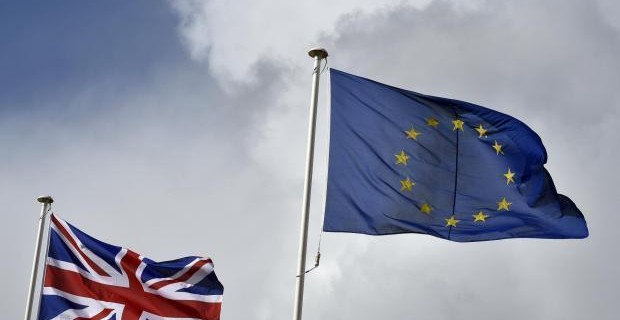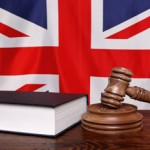Brexit supreme court appeal begins

Senior judges prepare to hear Brexit supreme court appeal
Four-day hearing on whether parliament or government has right to trigger article 50 will be broadcast live
All 11 of the UK’s most senior judges will take their seats on the supreme court bench on Monday to decide whether parliament or the government has the authority to trigger Brexit.
The four-day hearing on the divisive constitutional issue will be broadcast live, testing the public’s appetite for intricate legal argument, arcane vocabulary and historical precedents.
The “justices”, as supreme court judges are known, may still be pondering their conclusions as they digest their Christmas puddings; their eagerly awaited judgment is not expected to be delivered until January.
Emotions are running high. Ukip has accused those behind the claim of being “arrogant federalists” intent on blocking Brexit, the Daily Mail has branded the high court judges who found against the government in the first round as “enemies of the people” and individual challengers – such as Gina Miller – have received death threats.
Nigel Farage’s pledge to lead a protest march of 100,000 Brexiters to the doors of the court may have receded, but the high-ceilinged courtroom will be packed with senior law officers and QCs from Scotland, Northern Ireland and Wales as well as the rival claimants’ legal teams and interveners.
On Monday, Labour’s shadow attorney general, Shami Chakrabarti, said the political aspect of the case had been “hyped in parts of the media”. She said: “This is about process. It is not about outcomes.”
Chakrabarti told BBC Radio 4’s Today programme: “It’s not just about doing it or not doing it. There are lots of questions to be decided about what happens next – how we live after Brexit, what our relationship will be with the remaining states of the European Union.”
She said it was unfair for newspapers to delve into the personal lives or supposed opinions of the judges.
“They have to be referees of the constitution,” she said. “If we start dragging these people through the media or through politics, putting them through a kind of political scrutiny – people like me are fair game, but the judges are not fair game. They cannot speak up for themselves. We all need them in the end if we’re going to settle our disputes in a civilised way in a courtroom.”
The panel of 11 justices is the largest ever assembled for a single case since the law lords were created in 1876. Such judicial mass mobilisation is recognition of the constitutional significance and political sensitivity of the hearing.
The bench will be led by the president of the supreme court, Lord Neuberger, and his deputy, Lady Hale. There are 12 justices on the court but one has recently retired and is yet to be replaced. The court normally sits in panels of five; an odd number is always required to ensure there cannot be a tie.
The court is housed in the neo-Tudor exuberance of what was once Middlesex County Hall, Westminster, opposite parliament. Its proceedings are less archaic than most crown courts: wigs are no longer worn and hearings are routinely broadcast live online. Most documents will be in digital versions. Daily transcripts of the hearing will be published.
The legal dispute is over who has authority to notify Brussels formally that Britain is withdrawing under article 50 of the treaty on European Union (TEU) – parliament or ministers.
Article 50 states that any member state may leave “in accordance with its own constitutional requirements”, an undefined term that has allowed both sides to pursue rival interpretations. The case has opened deep rifts in the consensus over the UK’s unwritten constitution.
Having lost by a three-nil ruling at the high court, there was speculation that the government would switch its argument on appeal and tell the court that article 50, which triggers Brexit, can be reversed at a future date by parliament. That would enable ministers to say that once triggered, MPs would have a subsequent opportunity to control the process.
Acknowledging that Brexit is not irrevocable would, however, be politically awkward for the prime minister and could risk the case being referred to the European court of justice (ECJ) in Luxembourg, the EU’s highest court, for clarification of the treaty’s meaning.
Such a diversion – apart from handing European judges power over the most intimate working of the UK’s constitution – would delay Brexit for months. None of the main parties is eager for a referral to Luxembourg.
The justices are unlikely to want it either but may not be able to ignore the question entirely. Some of the appellants from Northern Ireland argue in their submission that “if the court feels that anything turns on this issue … plainly it is an issue of EU law which should be referred to the court of justice of the European Union”.
Legal submissions are due to be opened by the attorney general for England and Wales, Jeremy Wright QC, who will outline the government’s argument that executive powers, inherited through what was once the royal prerogative, are sufficient to sign and authorise international treaties.
The industrious James Eadie QC, whose work as “Treasury devil” requires him to be present at innumerable cases involving the government, will pick up the more detailed line of reasoning along with Jason Coppel QC. The Brexit secretary, David Davis MP, formally the respondent in the case, is not expected to be present in court.
As well as Wright, who is a Conservative MP, other senior law officers taking part include the counsel general for Wales, Mick Antoniw, who is a Labour member of the Welsh assembly, Scotland’s lord advocate, James Wolffe QC, and the attorney general for Northern Ireland, John Larkin QC.
The original challengers have retained a host of successful QCs to develop their assertion that the government cannot arbitrarily remove rights established through domestic legislation by executive decree. Parliamentary sovereignty, they maintain, is supreme.
Source: theguardian – Senior judges prepare to hear Brexit supreme court appeal





























